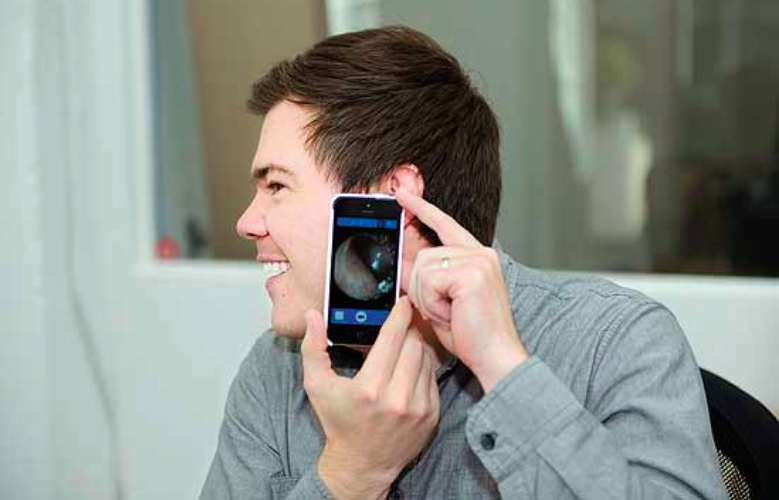Clever hardware brings health to the home
CEO Summit is less than 24 hours away! For the last segment of our Q&A series, we sat down with Erik Douglas, scientist-entrepreneur and co-founder of CellScope. His breakout session Best Practices for Hardware in Healthcare, will focus on the creation of healthcare technology that can provide care and usability beyond the clinic.
What inspired the creation of CellScope?
CellScope grew out of a project at Berkeley, where we developed mobile-phone based microscopes for diagnosis in places like India, Vietnam, and Congo. That experience pushed us to think about how to provide access to care beyond traditional settings. Working with physicians and families closer to home, we saw that the technology we originally built for malaria and tuberculosis could also have impact on common problems like ear infection. We want to increase access to high quality care by rethinking tools that have previously seemed unapproachable to everyday users.
How can we benefit from delocalizing diagnostic tools from clinical settings?
Better answers, faster. Mobile devices are always with us, providing a new platform for generating rich data. With tools like the CellScope Oto, a user can collect healthy images from home, or follow the course of an infection by taking images every day for a week. For ear infections, the American Academy of Pediatrics recommends a “watchful waiting” approach, where the patient comes back to the office in a few days. In reality, follow-up visits fall victim to busy schedules, so doctors too often fall back on antibiotics. Tools like ours can help the patients access care from anywhere. By increasing the rate of data collection, we can start to uncover new insights which may lead to better care.
Cellscope just shipped their first product. Congrats! What unique challenges as a digital health device company did Cellscope face in development and shipping?
Even in the age of rapid prototyping, it’s harder to be nimble with hardware. Sometimes we have to make decisions that get set in steel. I’ve also spent more time than you could believe crawling around our floor hunting for tiny optical parts lost in the carpet. But it was a thrill to see our first batch of Otos neatly packaged and ready to ship. I’m excited about the superpowers we can develop by combining new hardware with clever software.
How has your background in bioengineering influenced the way you think about digital health technology?
Bioengineering is a mix of science and engineering, combining problem-finding and tool-building. It’s great preparation for a startup, especially in a field like digital health where the targets are always moving. We are creating new tools that are designed to meet a real need, while keeping an eye to the future and where we can go from the next plateau.
—-
Erik Douglas is the co-Founder and CEO of CellScope, which has created a smartphone-enabled diagnostic toolkit for at-home detection. He is a scientist-entrepreneur whose work focuses on taking advanced diagnostic tools out of the clinical setting and into the real world. He earned a PhD in bioengineering from Berkeley and UCSF, where he designed tools for personalized medicine and developed mobile imaging technology.
